Today is Pakistan’s independence day, and tomorrow is India’s independence day. British India once comprised India, Pakistan and Bangladesh. In 1947, the British packed their bags and left. Pakistan and India were the two successor states forged after absorbing the princely states, which the British used as puppets. In 1971, Bangladesh won its independence from a West Pakistan that had conducted genocide and rape of dark-skinned Bengalis.
Even as I write this, Bangladesh is in turmoil. Mobs stormed the Prime Minister Sheikh Hasina’s palace, and she has fled to India after 15 years of increasingly autocratic rule. Pakistan is not doing much better. Economically, it is definitely doing worse. In 2023, Pakistan’s per capita income fell to $1,407, from $1,589.3 in 2022. Bangladesh’s per capita income fell too, but to $2,529.1 in 2023 from $2,687.9 in 2022. In 1971, Pakistan’s per capita income was $175.2 while Bangladesh’s was $128. Clearly, the darker cousin outstripped the fairer one over the decades.
Anwar Iqbal, writing in Pakistan’s flagship newspaper Dawn, tells the tale of Pakistan going with a begging bowl to the International Monetary Fund (IMF) a staggering 23 times. Even as IMF bailouts continue, a kleptocratic elite lives opulent lives as latter-day Mughals. The Pakistani Army holds the country together with the barrel of a gun and by whipping up the fear of its larger neighbor, India.
Yet there are schisms even within the military. Two days ago, the military arrested Lieutenant-General Faiz Hameed of the fabled Inter-Services Intelligence (ISI) in a historic first. The former ISI chief was close to cricketer-turned-politician Imran Khan, who became prime minister upending traditional parties but is now languishing in jail. Now, members of Pakistan’s traditional political families — lucky sperm club — hold elected offices after blatantly rigged polls. As Pakistani elites flee the country to safe havens like Dubai and London, this nuclear-armed country is becoming ever more Islamist.
India is doing much better but is in ferment
India’s per capita GDP has risen from $118.2 in 1971 to $2484.8 in 2023. India has avoided the instability of either of its Muslim-majority neighbors. Except for a brief two-year interlude in the 1970s, India has been a democracy with regular elections and a peaceful transfer of power.
Today, Indians are better-fed, taller and live longer than ever before. In 1947, when India won independence, an average Indian lifespan was a little over 32 years. Today, it is over 70. To be fair, life expectancy has also gone up in Pakistan and Bangladesh. If I go by numbers, independence has been a jolly good thing for the Indian subcontinent.
Yet for all the progress, Indians feel a sense of underachievement at the global stage. At the recently concluded Paris Olympics, 1.4 billion-strong India finished 71st, behind tiny Lithuania with a population of 2.8 million. Before independence, India had Nobel laureates like Rabindranath Tagore and C.V. Raman. Today, the country has none.
Education has become a game of competitive examinations with private coaching companies making fortunes to train teenagers to crack exams for prestigious public universities generously funded by the state. Government hospitals are overcrowded and the country is currently up in arms after the rape and murder of a female doctor in Kolkata. Ironically, this state of West Bengal (population of over 100 million) is ruled by the Trinamool Congress’s Mamata Banerjee, one of the most prominent women leaders in the country. A day ago, a final-year engineering student was abducted, raped and dumped on the Agra–Delhi highway. This state is ruled by Yogi Adityanath, a Bharatiya Janata Party (BJP) leader who has made his reputation for being tough on crime.
Part of the reason for high crime is the lack of police reforms since 1947. Also, courts take an eternity to decide upon cases. The structure of the state is still colonial and corruption is a way of life. In many ways, Indian democracy is skin-deep. At the district level, unelected officers of the imperial-era Indian Administrative Service (IAS) rule like feudal lords from colonial bungalows. They are assisted by officers of the Indian Police Service (IPS). Both the IAS and the IPS answer directly to the chief minister of the state. Local mayors have no real power.
Related Reading
Strong chief ministers from almost all parties rule their states with two to five IAS officers and one or two IPS officers imposing their will on the people. They are elected monarchs with vast powers of patronage. Prime Minister Narendra Modi has taken this IAS model of governance to the national level. His ministers are ciphers with no power or even status. Favored IAS officers are Modi’s feudal barons who ride roughshod even over BJP politicians. In other parties such as the historic Indian National Congress or the Samajwadi Party, dynasts rule the roost. Indian democracy is proving resilient but is not in rude health.
India is not alone in experiencing institutional and moral degradation. South Africa does not have a Nelson Mandela; France is not led by Charles de Gaulle, and the US is far cry from the days of Franklin Delano Roosevelt or Dwight David Eisenhower. Yet with 1.4 billion people, urban squalor, rising unemployment, unmet expectations and social divisions along caste, region and religion, the Indian republic faces immense challenges ahead.
My father was born in 1942, five years before India’s independence. In the 1971 India–Pakistan War, he operated for 72 consecutive hours. In his old age, he views India’s post-independence story wistfully. India is doing much better than Pakistan or Bangladesh, but that is not enough for him. He takes the view that hospitals safe for women doctors and trains where toilets are clean are not that hard to achieve. That is the minimum I have to achieve as a people to make the sacrifices of those who spent years and even decades in British jails worthwhile.
The views expressed in this article are the author’s own and do not necessarily reflect Fair Observer’s editorial policy.
Support Fair Observer
We rely on your support for our independence, diversity and quality.
For more than 10 years, Fair Observer has been free, fair and independent. No billionaire owns us, no advertisers control us. We are a reader-supported nonprofit. Unlike many other publications, we keep our content free for readers regardless of where they live or whether they can afford to pay. We have no paywalls and no ads.
In the post-truth era of fake news, echo chambers and filter bubbles, we publish a plurality of perspectives from around the world. Anyone can publish with us, but everyone goes through a rigorous editorial process. So, you get fact-checked, well-reasoned content instead of noise.
We publish 3,000+ voices from 90+ countries. We also conduct education and training programs
on subjects ranging from digital media and journalism to writing and critical thinking. This
doesn’t come cheap. Servers, editors, trainers and web developers cost
money.
Please consider supporting us on a regular basis as a recurring donor or a
sustaining member.
Will you support FO’s journalism?
We rely on your support for our independence, diversity and quality.




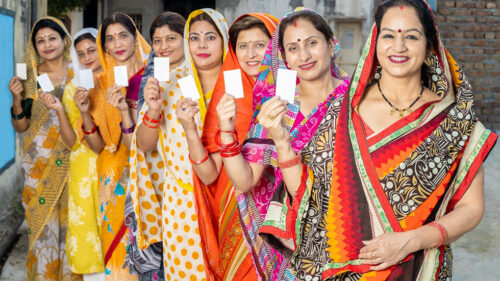
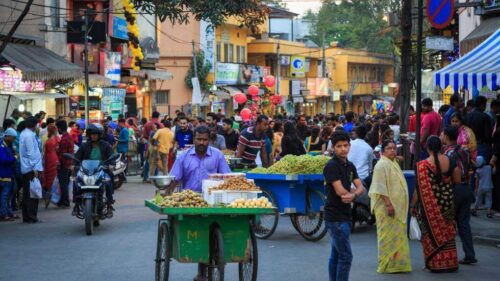
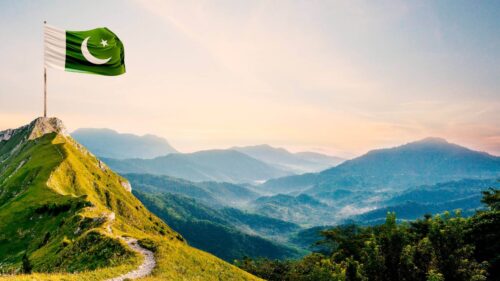
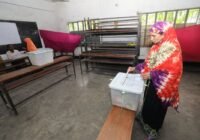

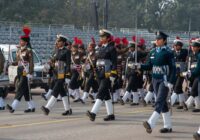


Comment